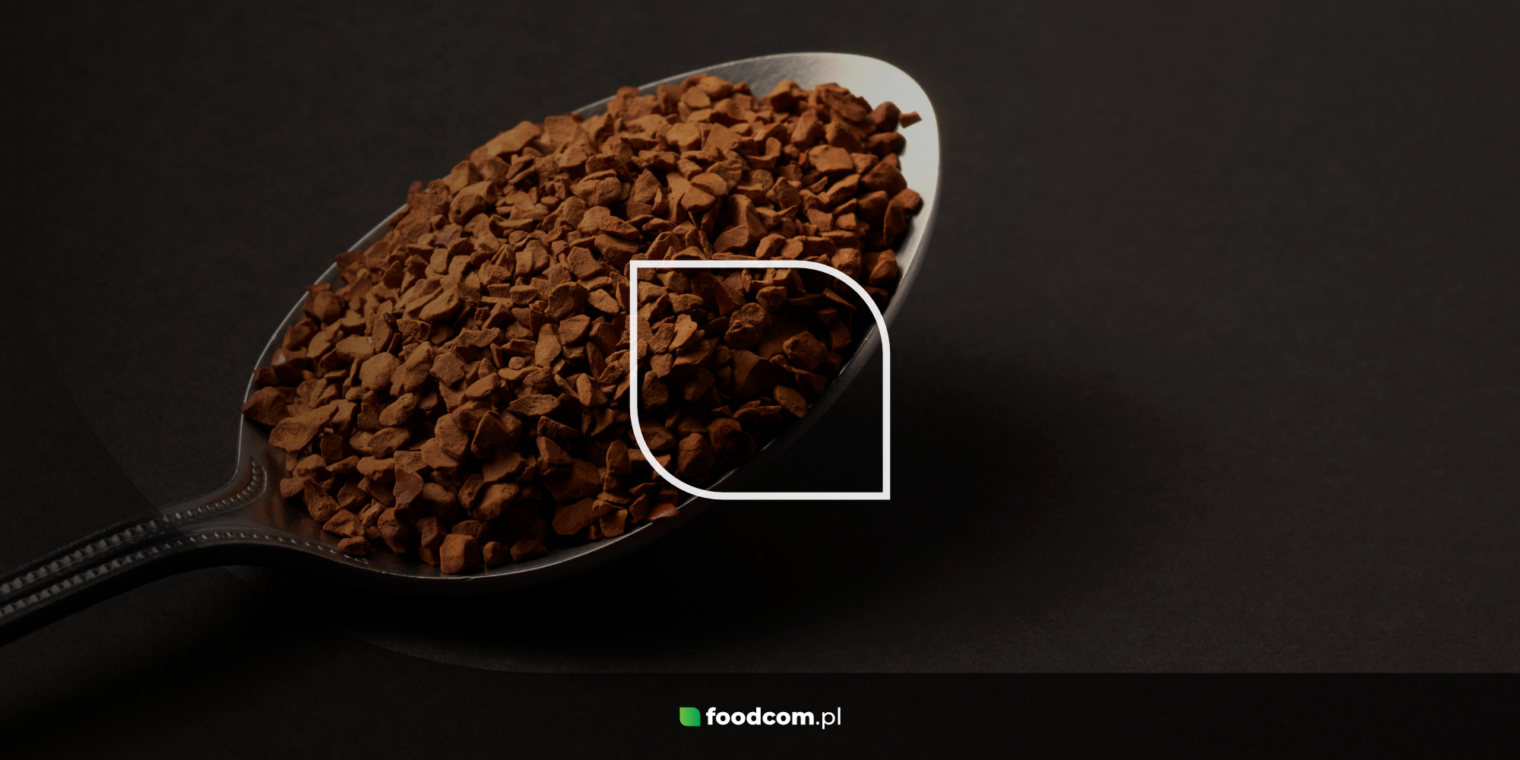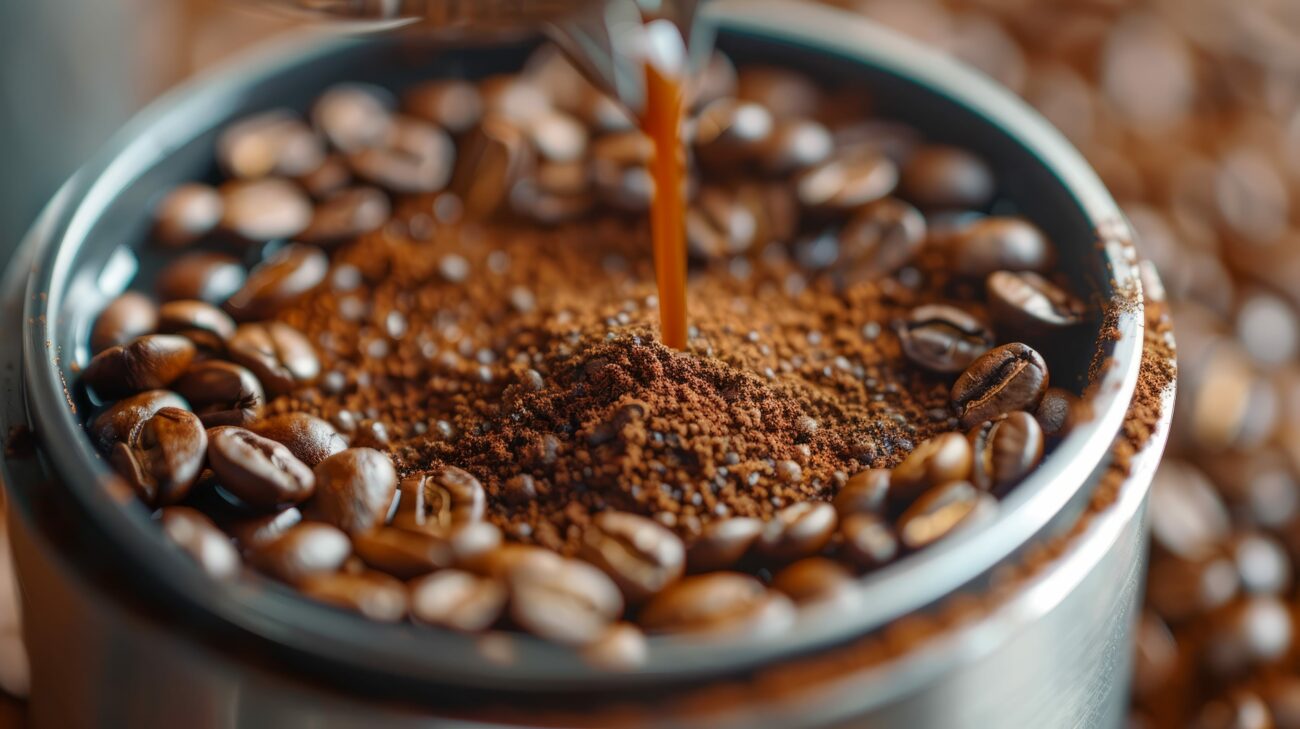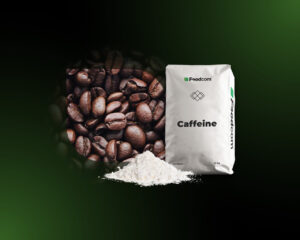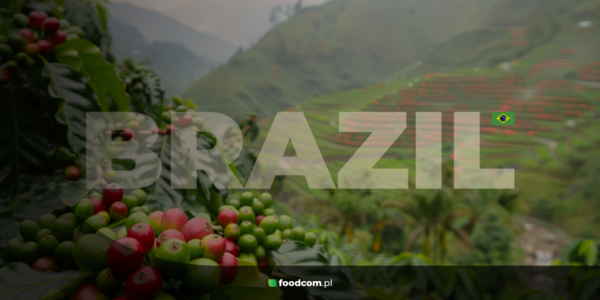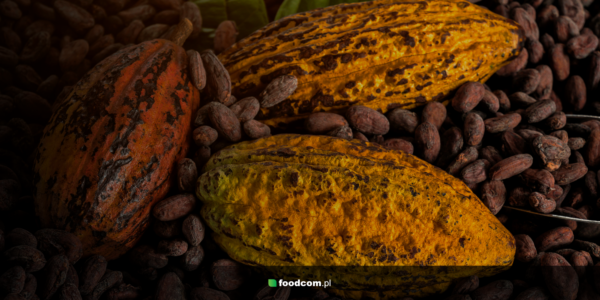- Instant coffee is a form of coffee that is quicker to prepare and stays fresh longer.
- This form of coffee is not as aromatic, contains less caffeine and differs slightly in composition from ground coffee.
- Depending on the production method, there are three types of instant coffee.
Instant coffee is a frequent guest in our homes or offices. To prepare it, we do not need a grinder, coffee machine or brewer, but only hot water and a packet of ready-made coffee. Many believe that it is no substitute for the taste of freshly ground coffee, but the pleasant flavour and speed of making the drink make this product still extremely popular. How is instant coffee produced and what exactly is it?
What is instant coffee and what is its composition?
Instant coffee is a more processed product than freshly ground coffee beans. More nutrients, flavours and aromas are lost during processing, so that the coffee does not have the same intense flavour and aroma as ground coffee. However, it still contains a high dose of caffeine and antioxidants. Instant coffee is quicker to prepare than brewed coffee, and it stays fresh longer, is more affordable and available in any shop.
The quality of tested instant coffee is comparable to ground coffee, but it may contain fewer health-beneficial nutrients – although there are reports that the antioxidant, calcium, manganese, zinc and magnesium content may even be higher. Its composition is found to contain slightly higher values of components that are harmful to health than in coffee beans. These include carcinogenic acrylamide and the allergenic metals aluminium and nickel. Soluble coffee also reduces the absorption of iron to a greater extent due to twice the amount of oxalates, which can also harm people with kidney or pancreatic disease. It also contains less caffeine and cholesterol than brewed coffee.
How is instant coffee made?
The first stage in the production of instant coffee is the selection of coffee varieties and beans according to the desired strength and taste of the finished product. The beans are then roasted at 200-240°C and ground, similar to the production of traditional coffee.
The ground beans are then brewed by subjecting them to very high pressure in the presence of a small amount of water at 60-180°C to produce a thick brew with a coffee-to-water ratio as high as 2:1. This extract is then concentrated and evaporated.
There are three types of instant coffee on the market: loose powder, light granules or crystals. Instant coffee in powder form is created through a spray-drying process. This uses a jet of very hot air at a temperature of about 250°C to which the extract is subjected for 5-30 seconds. Granulating the coffee powder in the aggregation process by moistening with steam and drying allows for a more attractive form and improved solubility.
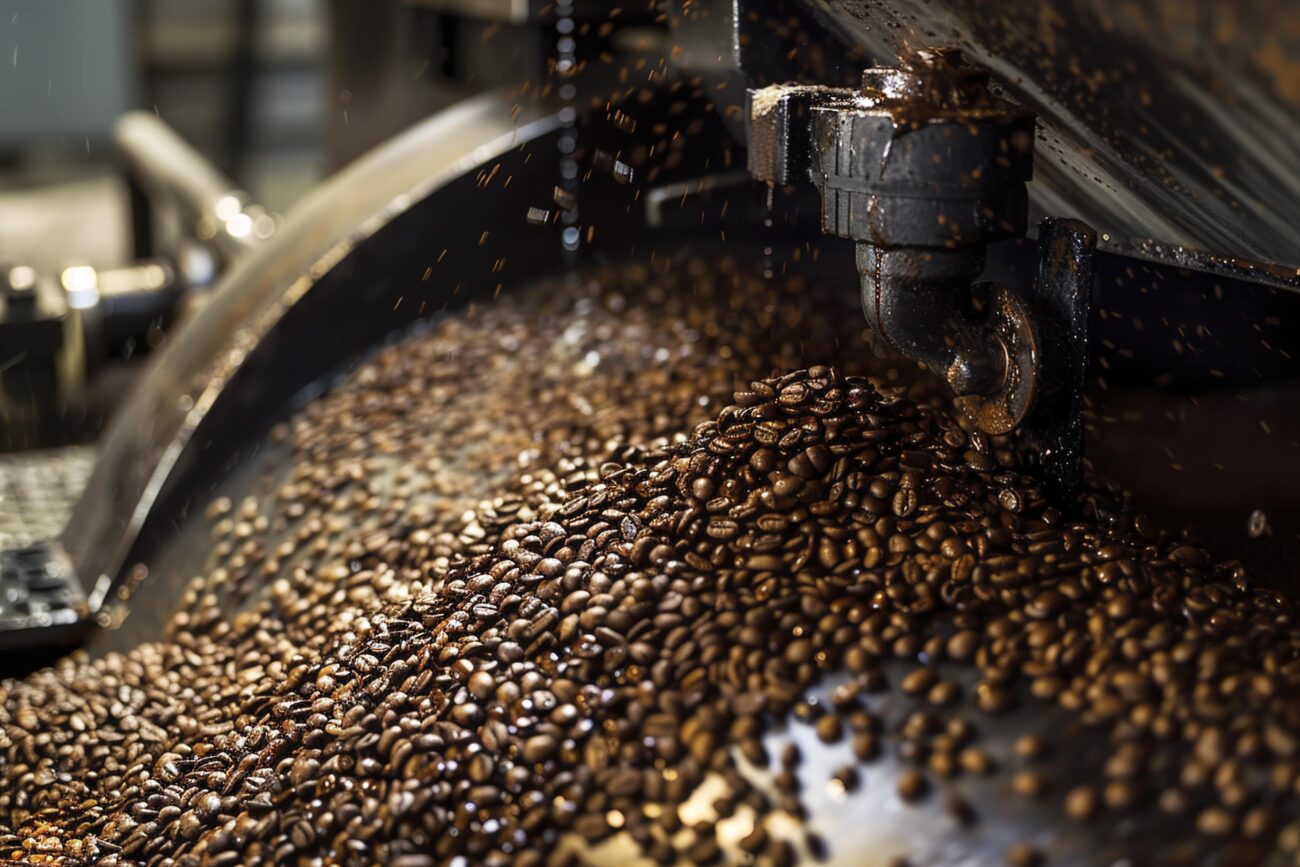
The production of instant coffee in the form of crystals, on the other hand, involves freeze-drying the extract obtained, i.e. freezing the brew at a temperature of approx. -40°C. The ice crystals are evaporated from the product by sublimation under low pressure. The instant coffee in the form of a large lump is then ground into small lumps.
Who invented instant coffee?
The history of instant coffee dates back to 1771, when the first versions of such a product were made in the form of a liquid extract in the UK. In 1891 in New Zealand, David Strang patented a method of drying coffee with hot air. The first instant coffee powder as we know it today was created in 1901 and was presented by the Japanese Satori Kato. In 1910, the first mass production of instant coffee in the USA began – G. Washington’s Refined Coffee was extremely popular with soldiers in the First World War.
Instant coffee – types and health values
As already mentioned, there are three types of instant coffee. Freeze-dried coffee is considered to be the most beneficial for health. In the process of its production, as many beneficial values are not lost as in the case of powdered or granulated coffee. In addition, it is more aromatic and has a milder taste.
Doubts about instant coffee may relate to the quality of the beans from which it is produced. Often inferior quality beans or waste from the production of coffee beans go into its processing. However, instant coffee without flavour enhancers, made from 100% coffee beans, should not be detrimental to health.
There are also 2-in-1 or 3-in-1 instant coffees on the market. These contain not only instant coffee, but also added sugar or powdered milk. They often also contain preservatives, fats or flavour enhancers. These types of products are not recommended as a healthy alternative to traditional coffee.
Major manufacturers of instant coffee
Instant coffee is becoming less and less popular in the West, but is gaining more and more favour with consumers in Asia. High consumption of instant coffee is also still recorded in the UK and central Europe, including Poland. The first manufacturer of instant coffee, which had considerable success as early as 1938 and shaped modern products, was Nestlé and Nescafé coffee. Other well-known producers are: Maxwell House, Jacobs Douwe Egberts, Tchibo, Lavazza and Poland’s Mokate. Instant coffee and other high-quality food concentrates are offered by Foodcom S.A.
In conclusion, instant coffee, although different from traditional coffee in terms of taste and composition, remains a popular choice due to its convenience and speed of preparation. It will be a good choice in particular for those who do not have time for long brewing rituals and for those who prefer a milder coffee flavour or wish to reduce their caffeine intake. The variety of forms available on the market allows consumers to choose a product to suit their individual preferences, but it is always worth paying attention to the quality of the beans used in the production of coffee and the process itself in order to choose a product with the highest nutritional value.


